The 6 best restaurant SEO tips for better search ranking
Skip the article and turn takeaways into action by scheduling a call with our team.
It’s thanks to search engine optimization (or SEO for short) that you are reading this article about restaurant SEO right now.
The internet is an ever-growing resource of easy-to-access information on every subject imaginable, and with that comes a lot of online competition for search engine rankings. These days, your restaurant website needs to incorporate savvy techniques if you want to rank high on Google searches. Similarly, you’ll want to show up on restaurant review sites like Yelp for maximum online visibility. If you don’t have an SEO strategy and a strong social media online presence, your brand may as well not exist to internet-browsing potential customers.
This article will teach you what restaurant SEO is and share some essential restaurant SEO tips. Read on and discover why SEO strategy is an important aspect of the restaurant industry.
What is restaurant SEO?
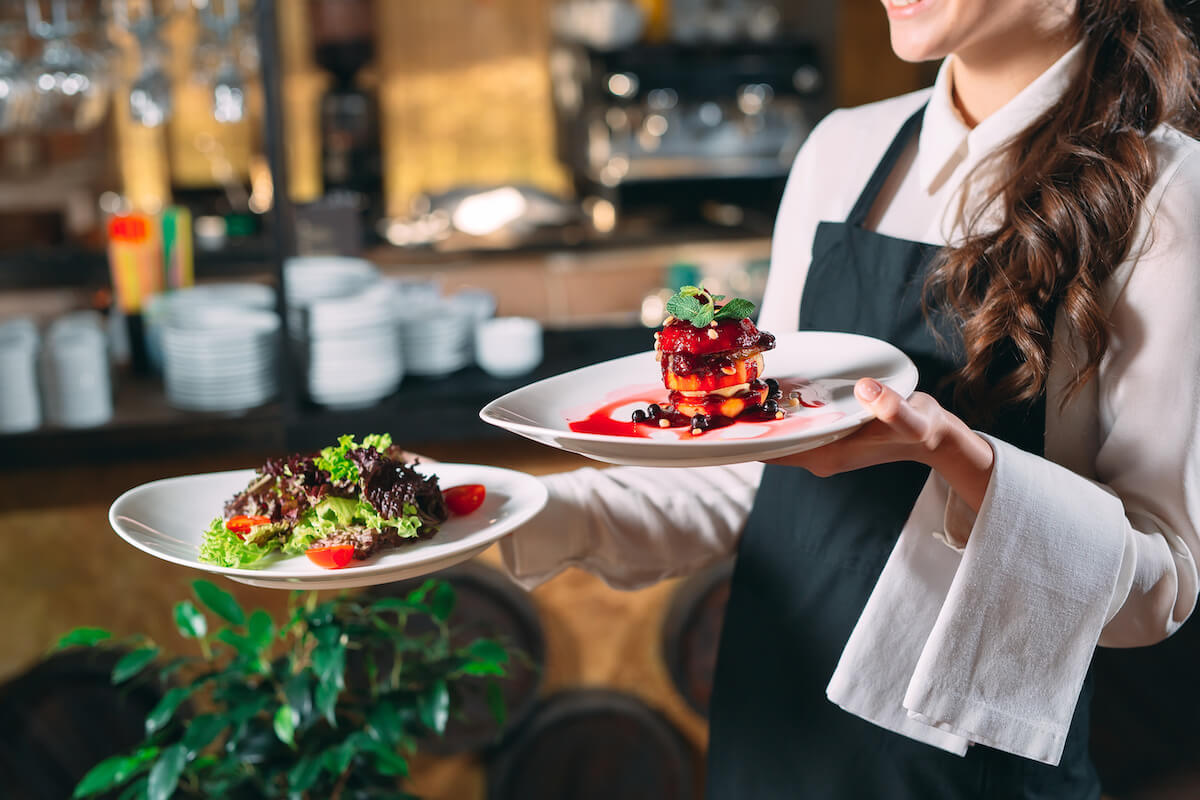
Search engine optimization (SEO) is a type of digital marketing that focuses on making strategic changes to your restaurant’s website to help it appear on the results pages of the internet’s top search engines. Rather than spending lots of money on advertising, SEO is about making simple, organic changes that help your website stand out amongst millions of others on search engines.
Restaurant SEO is about imagining the needs of your potential customers and the kind of Google searches they will be making. You then provide website content that gives them the answers they desire. The tricky part is optimizing this content using keyword research and other techniques that drive traffic to your website via organic searches.
You likely won’t witness results from restaurant SEO overnight. It can sometimes take months to start seeing your hard work pay off when checking your website’s Google Analytics. But it’s worth the wait.
The increased traffic from a solid restaurant SEO strategy means more people learning about your webpage and potentially sharing it with family and friends via social media. This in turn builds brand awareness and loyalty via increased customer engagement.
You can also improve your restaurant business by including links to online ordering on your homepage. You now have a user experience that looks like this:
- User searches for “best sushi in Denver”
- User clicks on optimized blog post that appears first on search engine results page
- User reads a convincing article and places an online order on the same website
The 6 best restaurant SEO tips
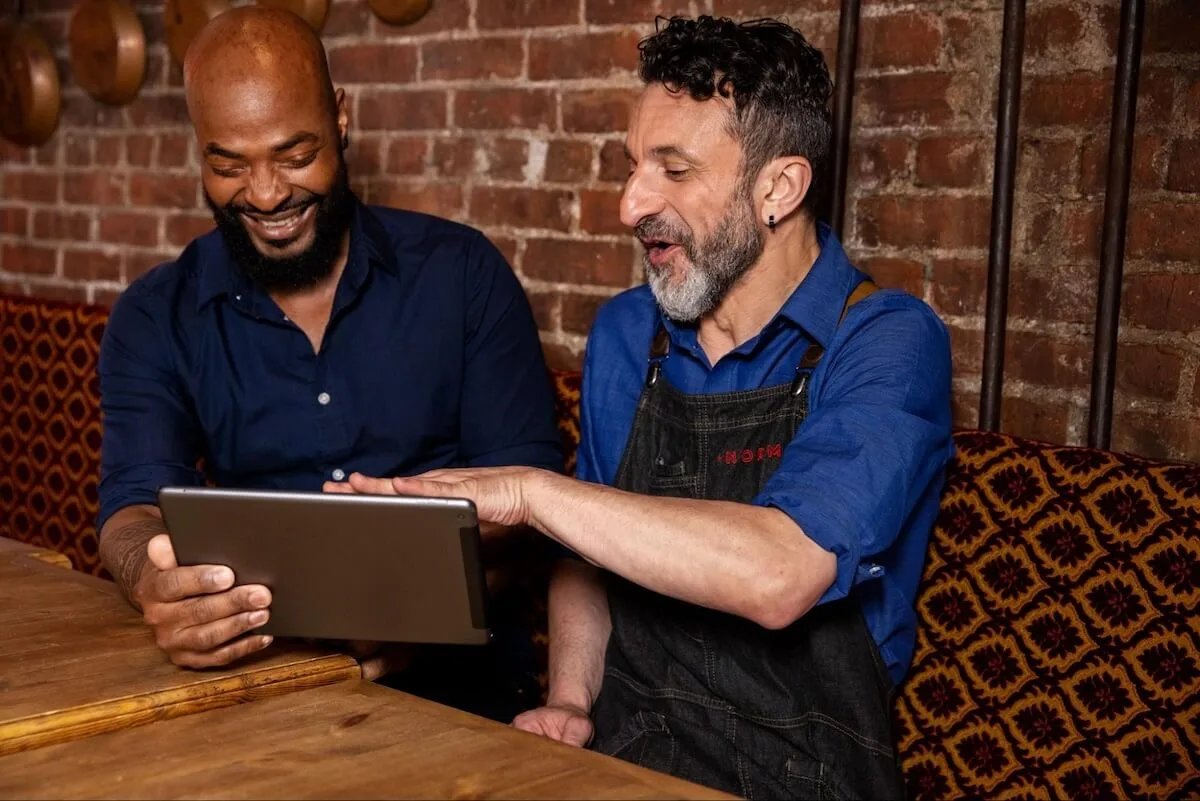
Now that you’ve been inducted into the ever-changing and sometimes confusing world of search engine optimization, let’s take a look at some methods that promote SEO best practices. SEO experts and amateurs alike are constantly coming up with new techniques to try to win the favor of the almighty algorithm.
If you’re serious about this journey, you must keep up with the latest SEO trends for your website to appear on the coveted first page of Google results.
1. Light up local search
Have you ever tried to find something quickly in a city you were visiting or even in your hometown? On the first page of Google search results, you will almost always see a Google map of local businesses with positive online reviews related to your keywords.
Improving your local SEO is one of the easiest restaurant SEO hacks there is and will help get local customers through your front door or ordering takeout. Just add business information (make sure it’s the same across platforms) such as your phone number to online directories and review websites like Yelp.
Once Google has crawled your restaurant’s information from these sources, your establishment will have more credibility in organic searches as Google will recognize your restaurant’s name as an actual business. It also gives your restaurant a greater chance of appearing on the map during a search, giving searchers easy access to all of your most essential information such as website, reviews, phone number, and address.
2. Max out your Google My Business
Having a solid Google business profile is one of the most valuable things you can build to create a solid online presence. Your business listing should include all relevant contact information as well as links to your website, a readily available menu, high-quality photos, online reviews, and more. When people see that your business is well-established and real with a number of positive reviews and photos, they’re more likely to want to visit your establishment.
Additionally, restaurants can include online ordering in their Google business profile. New customers may be more inclined to order delivery the first time rather than commit to a full in-person dining experience, so providing the option makes for an excellent marketing strategy for first-timers.
3. Lean into Yelp
Yelp provides excellent reach as a restaurant marketing tool with its tens of millions of monthly active users. For a point of comparison, Yelp reaches 8x more consumers online than OpenTable. So what can you do to make the most out of your Yelp page?
Claim and verify your business listing and complete your profile. To begin, follow these steps:
- Go to www.biz.yelp.com/claim, and type in your business name. If you don’t see your business, click “Add to Yelp for free,” and fill out your basic business details.
- Create a free business user account by entering an email address and password. You should use an email address you check regularly to stay on top of what’s happening with your page.
- Verify your account by entering your verification code. You can choose to get an email, text, or call to the number listed on your page.
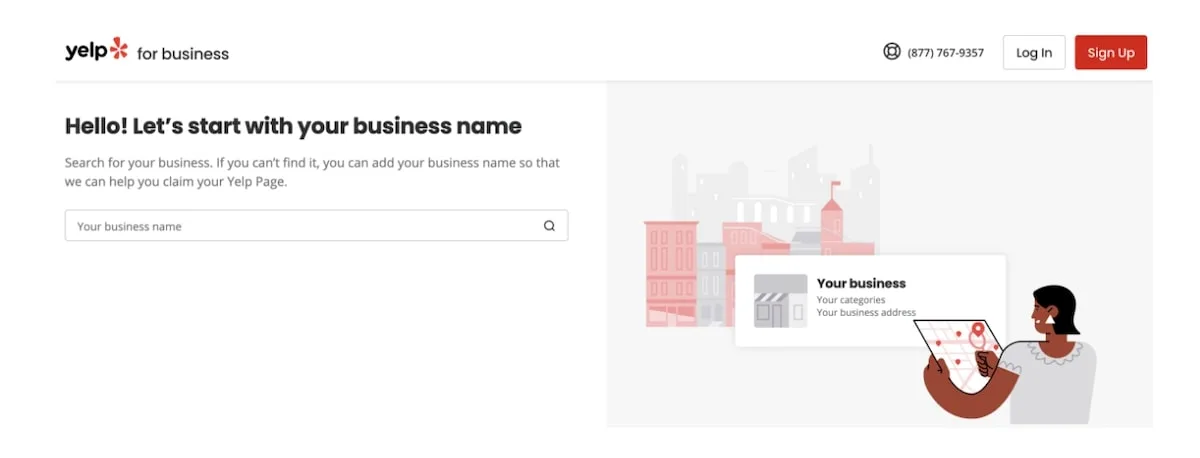
We recommend reading Yelp 101 to get your page thriving with photos, customer reviews, and much more.
Excellent photos combined with reviews make your restaurant come into focus for new customers. You can simply drag and drop photos to your page, and customers can upload photos as well. Yelp users who upload photos get regular notifications about their photo’s metrics, keeping them thinking of you.

Practice responsiveness to reviews: Responding to as many reviews as possible demonstrates credibility and helps build your brand.
Using keywords relevant to your cuisine, special dishes, or location in your description helps customers find you via Yelp. So, if you’re an Italian restaurant, highlight as many dishes as possible (pizza, specific pasta types, etc.) with photos to tip the search algorithm in your favor.
Be sure to regularly update your menu to include seasonal items or specials, which can attract more attention. Additionally, consider implementing check-in offers where customers receive a small discount or free item when they check in on Yelp. This can increase the number of check-ins, which in turn increases your visibility on the platform.
Restaurants that use Guest Manager paired with Yelp Ads experience 87% more traffic on their Yelp business page. Yelp Guest Manager also allows for online bookings and waitlist-joining direct from search engines—a huge bonus to online visibility.
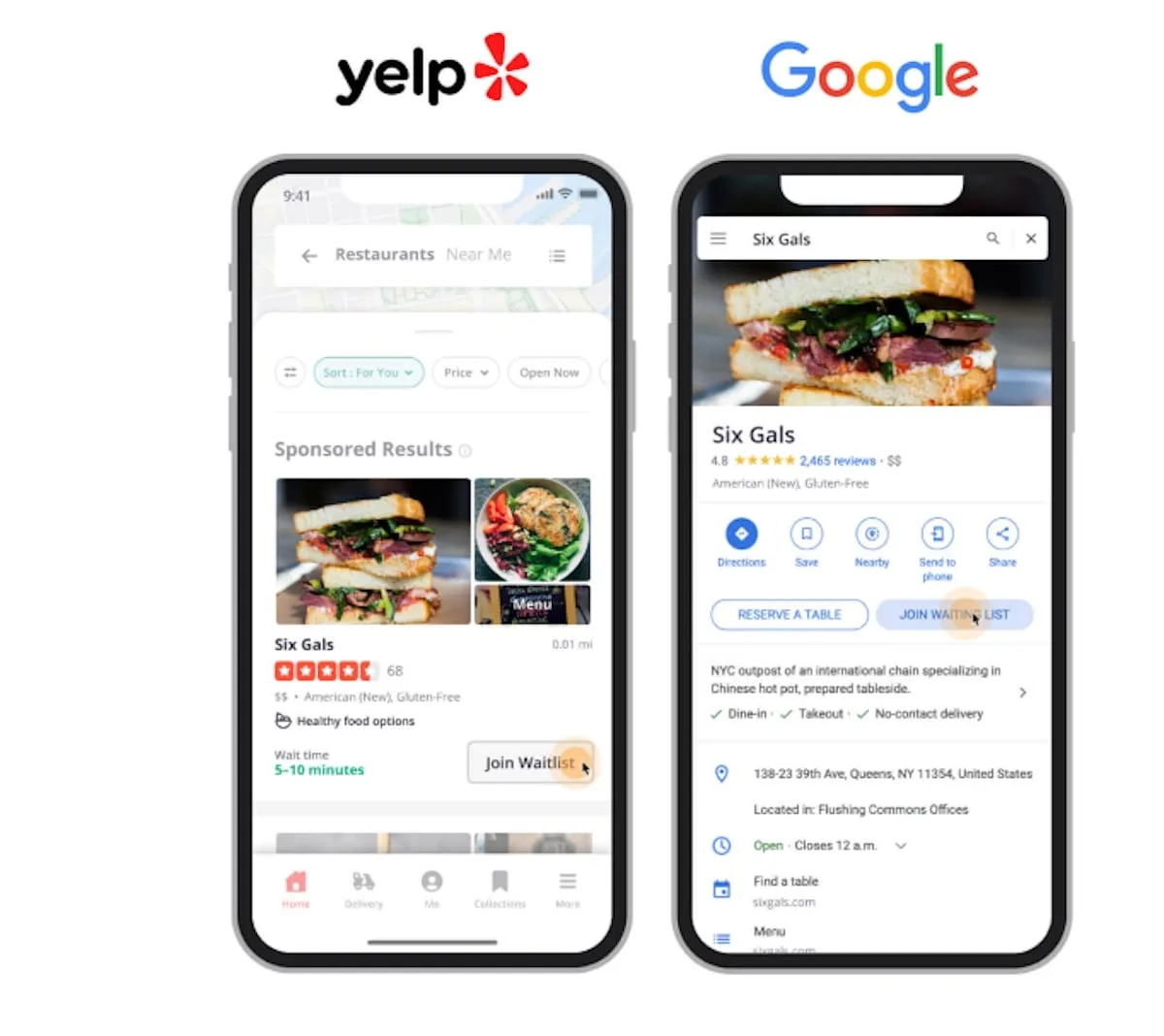
4. Work on your website
Your restaurant’s website is a key pillar of your business. Curious customers will look to it for a number of things beyond simply your menu (though that’s crucial). They’ll want to see photos, a bit of a story, your specials, and more. An impressive 77% of diners will visit a restaurant’s website before they visit, so making it professional in appearance and smoothness is vital.
Where your website shines in terms of SEO is in your on-page SEO as well as accompanying photos. Specifically, this means the keywords that will appear in Google or other searches that help put you to the top of the page. For example, including “Best Italian restaurant in Omaha” will help people searching for exactly that find you.
How far down the website rabbit hole you want to go is up to you. We recommend reading up on our restaurant website design article for a detailed breakdown on how to make your website work for you.
5. Write articles

Without articles or a blog on your website, what is a restaurant homepage left with? Probably menu items, contact information, an order page, and a link to your Yelp page. This is essential information and relevant for any restaurant website. But, it doesn’t give you many opportunities for restaurant SEO conversions.
Start using keyword planning tools like Google Keyword Planner to determine the popularity of searches that are relevant to your restaurant. You can then write articles that are optimized for specific keywords.
Not only could these blog posts attract potential customers to your website, they could also educate searchers about what’s happening at your spot. Not all articles need to be current—evergreen articles can help drive traffic year round. Evergreen articles are written to be informative and relevant at any point in time instead of tied to a specific week or month.
For example, try adding an article about your restaurant’s commitment to sustainability rather than write about your weekly specials. It takes a lot of time and patience but in the end, consistent, evergreen blog posts work as free advertising since they are web traffic-drivers.
Make sure to view your articles on mobile devices before you publish them. All of your headings and images should still display correctly. You could have the best on-page SEO in the world, but a potential customer will leave the page instantly if you don’t have a mobile-friendly website.
6. Ask the pros
Search engine algorithms have come a long way from the early days of the internet. There was once a time where people would stuff relevant keywords in hidden text at the bottom of an article and have free rein over what they wrote. Now there’s an entire industry devoted to serving the needs of businesses that simply don’t have the time or resources to worry about SEO techniques.
If you have more room to play in your marketing budget, try an agency. SEO and content marketing agencies create professionally optimized content for you to drive traffic to your website. Outsourcing to companies that help restaurant owners and other businesses stay ahead of competitors will save you hundreds of hours.
An agency will research the search terms of your demographic and use special software to write SEO-optimized articles that include dozens of keywords complementing users’ Google searches. They’ll also fill articles full of relevant backlinks, since link building helps the authority of your site. They also have established knowhow on penning meta descriptions and formatting articles to improve both readability and search rankings as well as adding alt text to photos. Many pros use tools like Semrush for its myriad metrics which the average business owner probably doesn’t need to understand.
If you’re not ready to hire an agency, start with a freelance SEO copywriter. They have the time and energy to churn out content for you so you can stay focused on running your restaurant.
Improving your restaurant SEO can start now
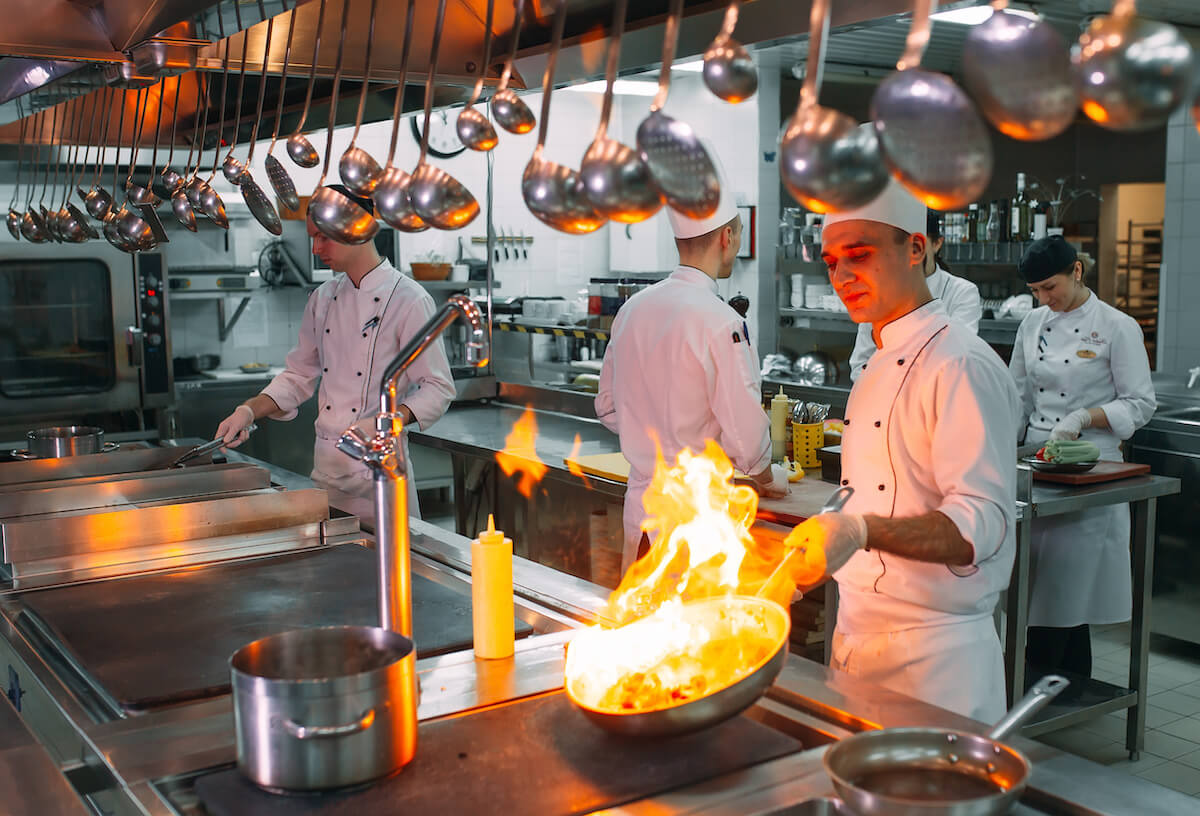
The world of restaurant SEO is still a constant game of cat and mouse—search engine rules change and websites adapt to follow the rules.
The best thing you can do if you want to keep appearing in searches is to stay consistent with content and keep up to date with any changes. First and foremost, make sure customers can find you via Google and Yelp and make the most of those pages.
Consider starting a blog that can potentially have hundreds of articles, all optimized for different keywords. Remember that local search is a very easy fix that can legitimize a new restaurant quickly. If you’re feeling overwhelmed, you’re best off just leaving it to the experts. Consider using the services of an SEO and content marketing agency.
Speaking of leaving it to the experts, you don’t need to reinvent the wheel in your front-of-house (FOH) services either. Yelp Guest Manager takes care of everything FOH while giving you a significant boost in online visibility. Curious to see how it works? Get a demo to help to optimize your connection with 95 million monthly users.